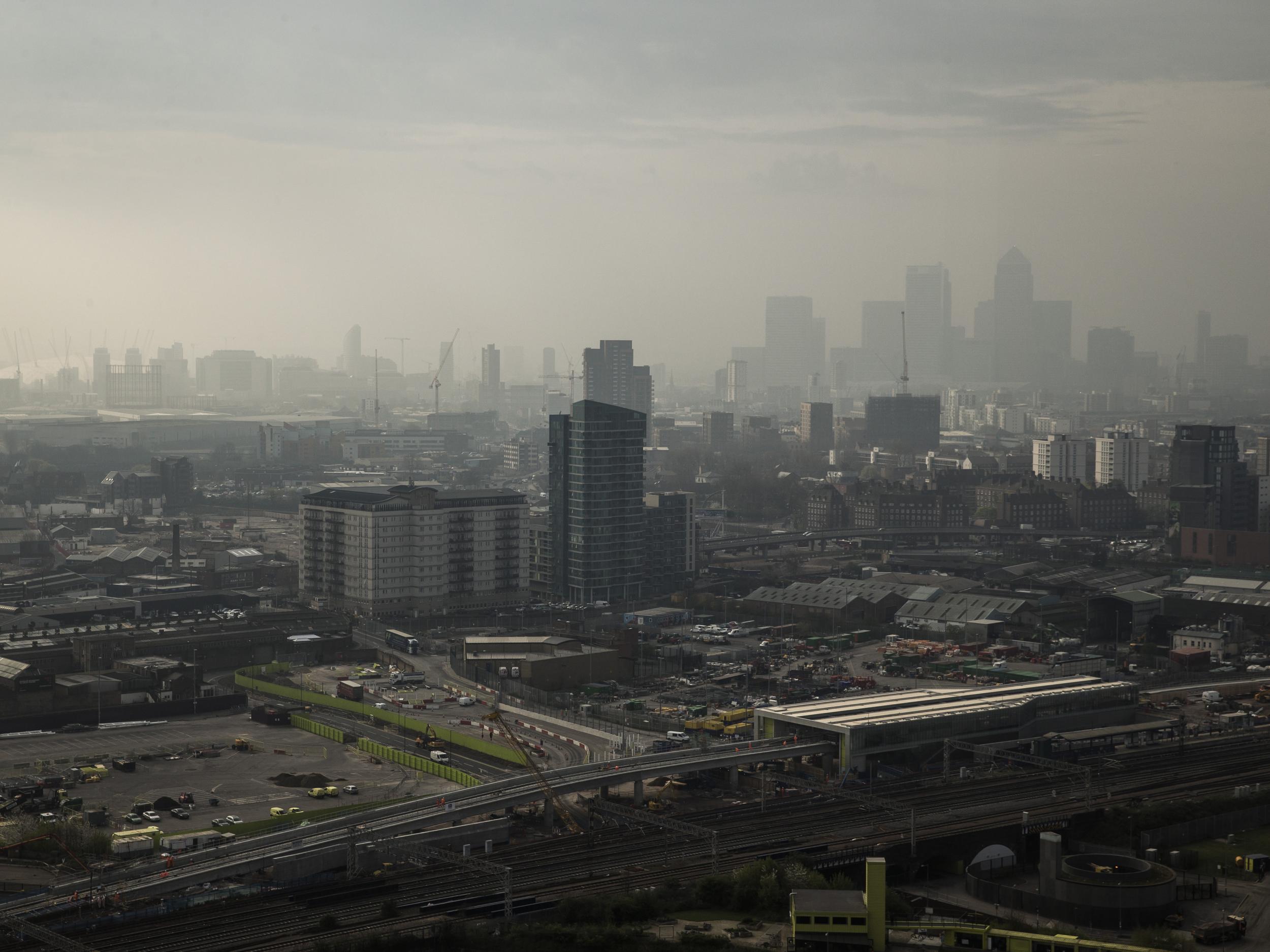Almost half of local authorities breach air quality guidelines, government records reveal
Poor air quality is a factor in more than 40,000 premature deaths in the UK every year

Pollution levels exceeded the legal limit in four out of 10 UK councils in 2015, according to data collected from local monitoring stations.
Across the country, 169 local authorities were found to have gone over annual EU limits on nitrogen dioxide, primarily because of heavy traffic on the roads.
Nitrogen dioxide, an invisible gas, is emitted by vehicles, particularly cars and vans with diesel engines, and is linked to lung disease and cardiovascular problems such as heart attacks and strokes.
A report in April from the environment, food and rural affairs select committee showed that poor air quality was linked to more than 40,000 premature deaths in the UK every year.
The committee chair, Tory MP Neil Parish, obtained the latest figures from the Department for Environment, Food, and Rural Affairs.
He drew attention to how much greater the scale of the problem is than most people suspected: while 31 of 32 London Boroughs exceeded the legal limit, so did far smaller urban areas like Caerphilly in south Wales.
Mr Parish said: “These are shocking statistics. When we think of areas breaking air quality laws, we usually think of a handful of areas in our busiest towns and cities. These figures show just how widespread the problem is across the UK. It requires a comprehensive solution – urgently”.
“The government needs to act now to give all councils the power – and crucially, the funding – to implement a clean air zone and limit the most polluting vehicles in hotspot areas. The £3m government funding pot is a start but not nearly enough. We also need a big push to incentivise electric and low emissions vehicles to replace the oldest, most polluting vehicles.”
Ministers are planning clean-air zones in five cities by 2020 but the new figures raise questions about both the feasibility and adequacy of this proposal.
A 1999 European Union directive which came into force in 2010 set legal limits on nitrogen dioxide levels, making it possible for the legal activist group ClientEarth to ask the high court to order ministers to come up with a better plan for reducing air polution.
Meanwhile, Mr Parish said he was working with the liberal conservative thinktank Bright Blue to secure the power and funding to introduce a clean air zone in pollution hotspots in all local authorities.
This month, the government made available £3m for councils to bid for funding to improve air quality.
Sam Hall, environment researcher at Bright Blue, told The Guardian the worst polluting cars should be banned from cities in order to tackle the problem.
Indyplus gallery: High air pollution levels across the UK
Show all 12“Forty percent of local authorities in the UK breached legal air pollution limits last year,” he said. “Poor air quality is clearly a national public health issue that requires urgent action.
“The government’s current plans for clean air zones in just five cities do not go far enough. Ministers should enable all city councils to set up clean air zones to restrict the dirtiest cars from urban centres.
“Together with measures to encourage greater uptake of electric vehicles, this approach would reduce air pollution, cut carbon emissions and boost automotive manufacturing in the UK.”
A government spokesperson told The Independent: “The government is firmly committed to improving the UK’s air quality and cutting harmful emissions.
“That's why we have committed more than £2 billion since 2011 to increase the uptake of ultra-low emissions vehicles, support greener transport schemes and set out how we will improve air quality through a new programme of Clean Air Zones.”
Subscribe to Independent Premium to bookmark this article
Want to bookmark your favourite articles and stories to read or reference later? Start your Independent Premium subscription today.

Join our commenting forum
Join thought-provoking conversations, follow other Independent readers and see their replies